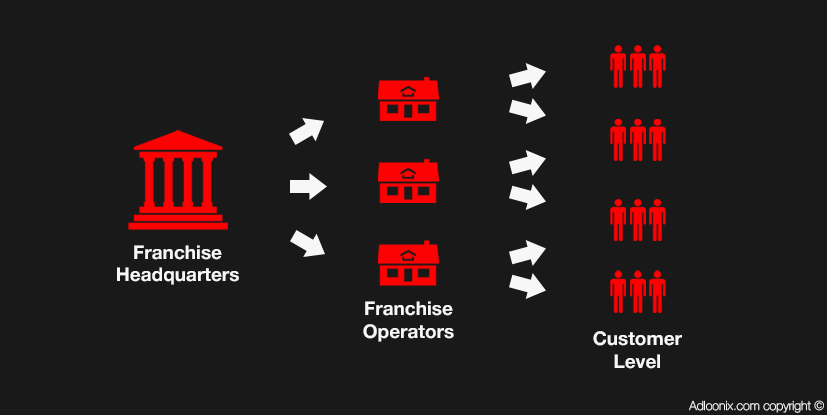The right strategy!
A substantiated market entry plan….
By not preparing, you are preparing to fail. (B. Franklin).
Expanding a franchise into a new country requires careful planning and research to ensure success. Here are some steps a franchise brand should take before starting in a new country:
Conduct market research:
This involves conducting extensive research to identify potential markets that may be a good fit for the franchise formula’s brand and products/services.
It also includes analysing market size, growth potential, consumer behaviour, local competition, cultural differences, regulatory requirements, and how good is the job market. Please keep in mind the franchise legislation and collective labour agreements.
The franchise formula should also consider any potential barriers to entry, such as language, culture or logistics issues.
Assess financial viability:
Assessing the financial viability of the new market is crucial. The franchise brand should evaluate the economic conditions of the new country and determine the potential profitability of the franchise.
Consider the cost of labour, real estate, taxes, and other expenses that may impact the business. This will help the franchise brand determine if the new market is financially viable and develop a plan to support the expansion.

Adapt the franchise model:
The franchise brand should adapt its business model to fit the new market’s needs. This could mean modifying the menu, adjusting prices, or altering the marketing strategy to suit local preferences. Adapting the franchise model will help the franchise brand cater to the local market’s needs and preferences, increasing the likelihood of success in the new market.
Value proposition development:
Once the franchise formula has identified potential markets, the next step is developing a compelling value proposition to attract potential master franchisees. This may include a clear articulation of the franchise formula’s unique selling points, a detailed description of the support and training provided to franchisees, and an overview of the potential financial returns for a master franchisee.
Develop a marketing entry strategy:
Could you develop a marketing strategy that resonates with the local market? This may involve partnering with local influencers, creating social media campaigns, or leveraging traditional advertising channels.
The franchise brand should develop a marketing entry plan that caters to the local market’s needs and preferences to increase brand awareness and generate interest in the new market.
Recruit and train staff:
Hire local staff and provide them with the necessary training to ensure they can deliver the franchise’s products or services to the standard customers expect. The franchise brand should recruit and train local staff to ensure they are knowledgeable and can deliver a high-quality experience to customers in the new market.
The war for talent:
With the labour market in the Netherlands coming under increasing pressure, franchisors and franchisees face increased competition for talented employees. To attract and retain the best employees, franchisors must offer more competitive wages and benefits, flexible working arrangements and professional development opportunities than they do today. And be sure that the franchise has a marketing plan ready to engage and retain employees.
By investing in their employees, franchisors and franchisees can ensure their businesses have the talent they need to succeed.



Monitor progress:
Continuously monitor and evaluate the franchise’s progress to ensure it’s meeting its targets and making a positive impact on the new market. The franchise brand should monitor key performance indicators (KPIs) and adjust its strategy as necessary to ensure a successful expansion into the new market. Regular monitoring and evaluation will help the franchise brand to identify and address any issues early on and ensure a smooth expansion into the new market.
Culture and communication:
Finally, the franchise formula should pay close attention to cultural differences and communication challenges that may arise as they expand into a new market. This may involve adapting marketing materials and branding to better resonate with local consumers and developing communication channels and collaboration processes that can bridge cultural differences and support effective communication between the franchise formula and its master franchisees.
Secure funding:
Expanding into a new country can be expensive, so secure adequate funding to cover the costs of establishing the franchise, including legal and administrative expenses, site selection, and staff recruitment. The franchise brand should develop a detailed financial plan and secure the necessary funding to ensure a successful expansion.
Establish legal and administrative processes:
Establish a legal and administrative framework to comply with the new country’s regulations. This may include registering the franchise with the local government, obtaining permits and licenses, and hiring local legal counsel. Compliance with local laws and regulations is essential to smooth expansion into the new market.
